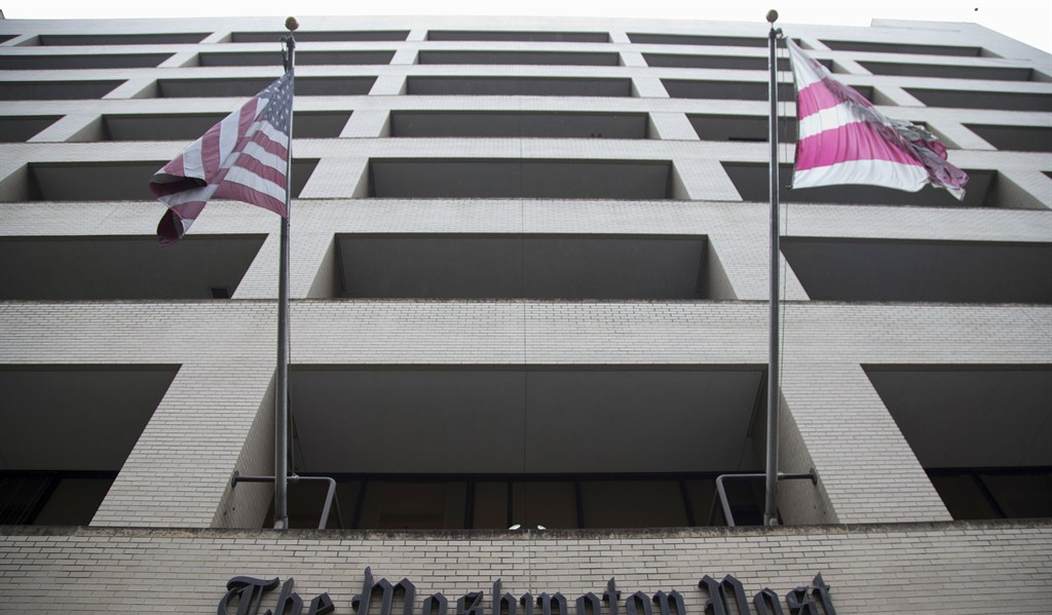After much criticism from conservative quarters, the Federal Communications Commission (FCC) has decided, at least for now, to withdraw plans for its proposed study of how media organizations gather and report news. The expressed goal of the survey was to determine if the "critical information needs" of the public are being met. In making the announcement on Friday, FCC Chairman Tom Wheeler indicated the survey would be "revised" and that the government agency had "no intention" of regulating political speech of journalists or other broadcasters.
You couldn't prove that from reading the initial study.
The obvious question is: Who gets to define my or your "information needs"? The answer begins with two universities commissioned by the FCC to conduct the study: the University of Wisconsin-Madison Center for Communication and Democracy and the Annenberg School for Communication and Journalism at the University of Southern California. Both associated with a liberal political philosophy.
The reasoning behind this proposed newsroom intrusion is that certain categories of the public ("underserved" consumers in multiple "media ecologies" in the bureaucratese of the study) may not be getting enough "balance" in its news diet.
FCC Commissioner Mignon Clyburn, daughter of Rep. James Clyburn (D-SC), says the FCC "must emphatically insist that we leave no American behind when it comes to meeting the needs of those in varied and vibrant communities of our nation -- be they native born, immigrant, disabled, non-English speaking, low-income, or other." But not, apparently, political conservatives, regular churchgoers, or patriotic Americans who believe their beliefs are "underserved" by most journalists. Seemingly, no one at the FCC cares overmuch if this particular "constituency" is underserved.
That there has been little more than a low decibel outcry from mainstream media about the FCC study is instructive. It is difficult to imagine Ms. Clyburn and her minions storming into network newsrooms, demanding to know how many conservatives are reporting the news. I once asked Lesley Stahl of CBS News if she could name a single conservative colleague. She could not. Maybe those concerned with our supposed news malnutrition can start at CBS.
Recommended
This "study" -- and possibly its revised edition -- is a form of intimidation designed to target not the broadcast networks (which is why they seem unconcerned), or even mainstream newspapers. "Fox News executives feared they were the ultimate target of this exercise, and who can blame them for this suspicion?" writes RealClearPolitics.com. "From the beginning of the Obama presidency, White House communications officials and Obama political advisers have leveled attacks on Fox, even going so far as to proclaim that it is not 'a legitimate' news organization." Is it so far-fetched to think that the FCC would not try to monitor conservative news outlets?
There is a reason America's Founders selected only one profession -- the press -- for special protection in the Bill of Rights. As expressed by Thomas Jefferson in a letter to John Jay in 1786: "Our liberty cannot be guarded but by the freedom of the press, nor that be limited without danger of losing it."
Politicians throughout American history, including Jefferson, have been targets of press criticism, sometimes unfairly, even inaccurately, but still the press has remained free, or was allowed to regain its freedom after wartime censorship.
The organization Reporters Without Borders recently ranked the United States 46th in the world when it comes to press freedom, just one spot ahead of Haiti. Why the low ranking? The Atlantic.com explains, "...the heritage of the 1776 constitution was shaken to its foundation during George W. Bush's two terms as president by the way journalists were harassed and even imprisoned for refusing to reveal their sources or surrender their files to federal judicial officials. There has been little improvement in practice under Barack Obama. ... No fewer than eight individuals have been charged under the Espionage Act since Obama became president, compared with three during Bush's two terms."
If the FCC moves forward with even a revised agenda that is intrusive and unconstitutional, that ranking is likely to decline even further.

























Join the conversation as a VIP Member